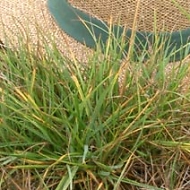
Perennial ryegrass
| Name: | Perennial Ryegrass (Lolium perenne) | ||||||||||||||||||||||||||||||||||||||||||||||||||||||||||||||||||||||||||||
|---|---|---|---|---|---|---|---|---|---|---|---|---|---|---|---|---|---|---|---|---|---|---|---|---|---|---|---|---|---|---|---|---|---|---|---|---|---|---|---|---|---|---|---|---|---|---|---|---|---|---|---|---|---|---|---|---|---|---|---|---|---|---|---|---|---|---|---|---|---|---|---|---|---|---|---|---|---|
| Description: | A highly nutritious winter/spring growing perennial. It is best suited to fertile soils. Low drought resistance. Short-lived on North Coast. In drier situations it suits higher altitudes. | ||||||||||||||||||||||||||||||||||||||||||||||||||||||||||||||||||||||||||||
| Minimum average annual rainfall: | 700 mm in Southern NSW, 800 mm in Northern NSW. | ||||||||||||||||||||||||||||||||||||||||||||||||||||||||||||||||||||||||||||
| Sowing rate: | 3–20 kg/ha. | ||||||||||||||||||||||||||||||||||||||||||||||||||||||||||||||||||||||||||||
| Select varieties on the basis of: | Maturity: Earlier flowering varieties tend to be suited to the drier areas of the perennial ryegrass zone. These varieties tend to produce feed earlier in winter, and less yield later in spring. Later maturity enables later feed production where moisture (e.g. irrigation) and temperature permit. Plant type: Tetraploid types have double the number of chromosomes that diploid types have. This characteristic means that plant cells are larger, and as a consequence, plant parts tend to be larger (e.g. larger leaves). There is some evidence that they are more palatable than diploid types. They produce well under high input systems of management. Rust resistance: On the coast and in humid growing areas, resistance to rust can be very important. Check with your seed source as to latest rust resistance information for your area. Persistence and seasonal production: Refer to local trial results (if available). Endophyte: Endophyte is a fungus living within the plant and capable of producing toxins. The type of endophyte present can affect production and/or persistence. High endophyte ryegrass has been associated with better establishment and persistence, although detrimental effects including ryegrass staggers and other production losses have been attributed to the presence of specific endophytes. The effects in NSW have yet to be fully clarified. However, positive effects on establishment and persistence are apparent on the South Coast where black beetle is a problem. Varieties are available with or without endophyte. Varieties are now available that contain novel endophyte (AR1). This endophyte may enhance production and persistence. It relies on peramine to deter insects and produces no ergovaline (potential cause of a number of livestock health disorders) and no lolitrem B (cause of ryegrass staggers). Meridian Plus AR1, Cannon AR1, Bronsyn Plus AR1 and Samson AR1 contain AR1 endophyte. The varieties Boomer, Camel, Roper and Prolong sold under the brand ‘Staggerfree’ have no endophyte and hence no lolitrem B. Other varieties listed may or may not contain endophyte. | ||||||||||||||||||||||||||||||||||||||||||||||||||||||||||||||||||||||||||||
| Seed available: | Note: 'P' denotes that this variety is protected by Plant Breeder's Rights.
| ||||||||||||||||||||||||||||||||||||||||||||||||||||||||||||||||||||||||||||


